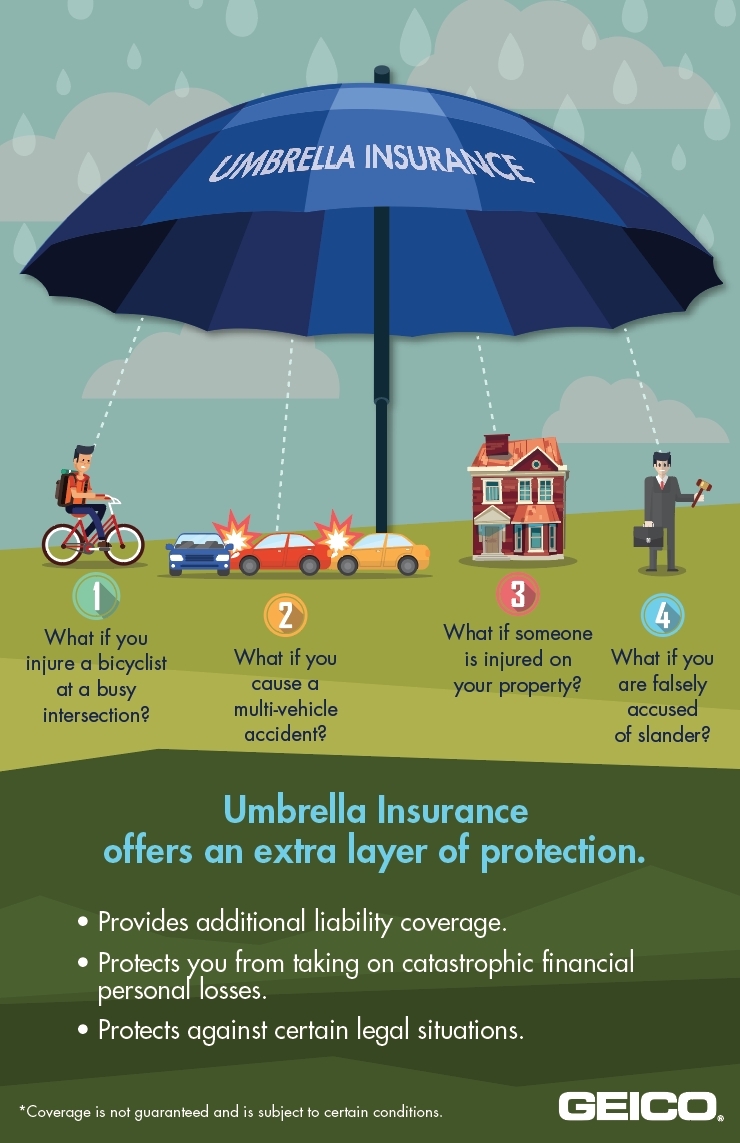1. Homeowners and Renters Insurance
Imagine this: You’re hosting a barbecue in your backyard. A friend accidentally trips over a loose patio stone and breaks their arm. Ouch! While you’re relieved they’re okay, you can’t help but worry about the potential medical bills and legal costs. This is where homeowners and renters insurance can be a lifesaver.
Homeowners insurance is designed to protect your home and its contents from unexpected events like fires, burglaries, and natural disasters. It also provides liability coverage, which helps pay for medical expenses and legal fees if someone gets injured on your property. Renters insurance, on the other hand, covers your personal belongings and offers liability protection while you’re living in a rented apartment or house.
But what if your liability claim exceeds your policy limits? That’s where umbrella insurance comes in.
Umbrella insurance acts as an extra layer of protection, providing additional coverage beyond your homeowners or renters policy. It can help cover costs associated with lawsuits, legal fees, and damages that exceed your primary policy’s limits. For example, if someone sues you for a significant amount due to an accident on your property, umbrella insurance can help you pay the difference between the amount your primary policy covers and the total judgment.

Image Source: businesswire.com
Here are some other situations where umbrella insurance can be beneficial:
Car accidents: If you’re involved in a car accident and are found liable for causing serious injuries or property damage, umbrella insurance can help cover the costs.
How much umbrella insurance do you need?
The amount of umbrella insurance you need depends on your individual circumstances. Factors to consider include your net worth, the value of your assets, and your lifestyle. It’s a good idea to consult with an insurance agent to determine the appropriate level of coverage for your specific needs.
Remember, umbrella insurance is an affordable way to protect yourself and your assets from unexpected events. By having this extra layer of coverage in place, you can enjoy peace of mind knowing that you’re financially prepared for whatever life throws your way.
Homeowners insurance is more than just a policy; it’s a safety net that provides peace of mind and financial security. It protects your home and its contents from a variety of unexpected events, ensuring that you can bounce back from setbacks and continue building your life.
What Does Homeowners Insurance Cover?
Homeowners insurance typically covers two main things: your dwelling and your personal belongings.
Dwelling Coverage: This part of your policy protects the structure of your home, including the walls, roof, foundation, and plumbing. It covers damages caused by fire, storms, theft, and other covered perils.
Additional Coverage Options
While the basic coverage is essential, you may want to consider adding additional options to tailor your policy to your specific needs:
Liability Coverage: This protects you from lawsuits if someone is injured on your property or if you accidentally damage someone else’s property.
Why Homeowners Insurance is Crucial
There are several reasons why homeowners insurance is a vital investment:
Protection Against Unexpected Events: Life is full of surprises, and homeowners insurance can help you weather the storm when unexpected disasters strike.
Choosing the Right Homeowners Insurance Policy
When selecting a homeowners insurance policy, it’s important to consider several factors:
Coverage Limits: Ensure that the coverage limits are sufficient to rebuild your home and replace your belongings.
By understanding the importance of homeowners insurance and choosing the right policy, you can protect your home and its contents from unexpected events and enjoy peace of mind.
Umbrella Insurance: Additional Protection for Your Assets